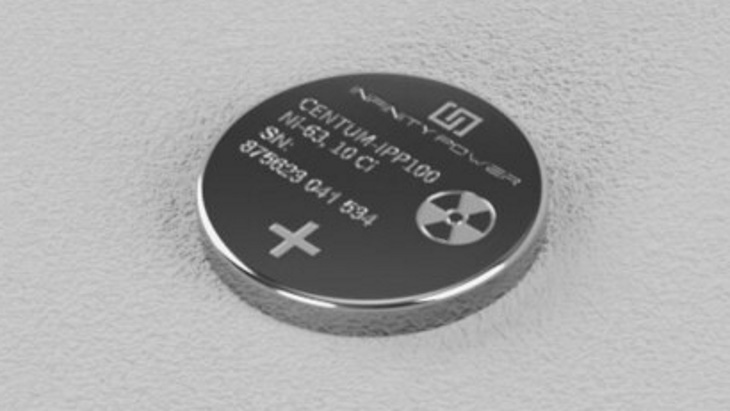Kronos Advanced Technologies Inc. and Yasheng Group have joined forces to develop and patent a small nuclear battery powered by the decay of nickel-63.
This innovative partnership aims to address critical energy storage needs across various sectors, including remote sensing, space exploration, medical devices, and military applications.
How Nuclear Batteries Work
Nuclear batteries, also referred to as radioisotope batteries, operate by harnessing the energy emitted during the decay of nuclear isotopes.

This energy is then converted into electrical energy through semiconductor converters.
A Reliable and Long-Lasting Power Source
The partners aim to design a small nuclear battery capable of providing a dependable power source with a lifespan of up to 50 years, eliminating the need for recharging.
Utilizing cutting-edge materials and innovative design, the battery will convert the energy released from the beta decay of radioactive isotopes like nickel-63 into electrical energy.
Promising Applications for Nickel-63 Nuclear Batteries
Nickel-63 nuclear batteries hold immense potential in various markets due to their unique properties and extended lifespan. Some of the targeted applications include:
- Medical Devices: Powering implantable medical devices like pacemakers, artificial hearts, and cochlear implants.
- Aerospace Industry: Providing a reliable power source for long-duration space missions and satellites.
- Remote Sensors and IoT Devices: Enabling maintenance-free power for remote sensors, micro-electromechanical systems, and Internet of Things devices.
- Environmental Monitoring and Industrial Applications: Powering environmental monitoring devices, industrial sensors, and advanced automation systems.
- Scientific Instruments: Providing a stable power source for various scientific instruments and equipment.
Potential for Consumer Electronics
While still in the developmental stage, nickel-63 batteries also hold the potential to revolutionize consumer electronics.
The possibility of creating devices like smartphones, laptops, and household gadgets that never require recharging could significantly impact the consumer electronics market.
Collaboration Agreement
Under the collaboration agreement, Yasheng Group, a Colorado-based company with a history in high-tech agricultural operations in China, will be responsible for filing the nuclear battery patent in China.
Kronos will handle the filing in North America, with each party covering the costs associated with filing in their respective countries.
Additionally, Kronos will receive 10% of the royalties earned by Yasheng in China, while Yasheng will receive 10% of the royalties earned by Kronos in North America.